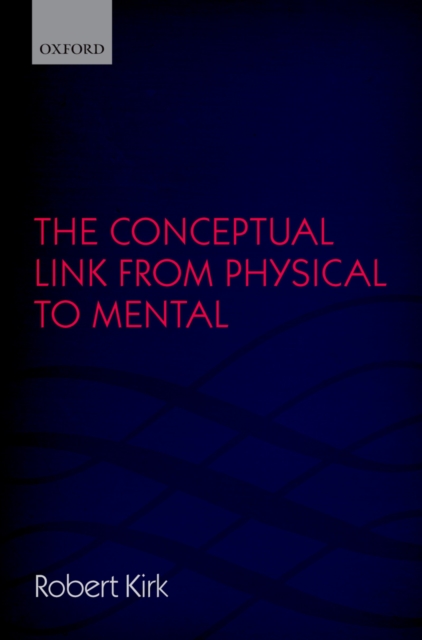
The Conceptual Link from Physical to Mental PDF
by Robert Kirk
Description
How are truths about physical and mental states related?
Physicalism entails that non-physical truths are redescriptions of a world specifiable in narrowly physical terms.
In The Conceptual Link from Physical to Mental Robert Kirk argues that physicalists must therefore hold that the physical truth 'logico-conceptually' entails the mental truth: it is impossible for broadly logical and conceptual reasons that the former should have held without the latter. 'Redescriptive physicalism' is a fresh approach to the physical-to-mental connection that he bases on these ideas.
Contrary to what might have been expected, this connection does not depend on analytic truths: there are holistic but non-analytic conceptual links, explicable by means of functionalism—which, heargues, physicalism entails.
Redescriptive physicalism should not be confused with 'a priori physicalism': although physicalists must maintain that phenomenal truths are logico-conceptually entailed by physical truths, they must deny that they are also entailed a priori.
Kripke-inspired 'a posteriori physicalism', on the other hand, is too weak for physicalism, and the psycho-physical identity thesis is not sufficient for it.
Though non-reductive, redescriptive physicalism is an excellent basisfor dealing with the problems that mental causation raises for other non-reductive views. 'Cartesian intuitions' of zombies and transposed qualia may seem to raise irresistible objections; Kirk shows that the intuitions are false.
As to the 'explanatory gap', there is certainly an epistemic gap, butit has a physicalistically acceptable explanation which deals effectively with the problem of how the physical and functional facts fix particular phenomenal facts.
Information
-
Download - Immediately Available
- Format:PDF
- Publisher:OUP Oxford
- Publication Date:31/01/2013
- Category:
- ISBN:9780191648199
Information
-
Download - Immediately Available
- Format:PDF
- Publisher:OUP Oxford
- Publication Date:31/01/2013
- Category:
- ISBN:9780191648199






